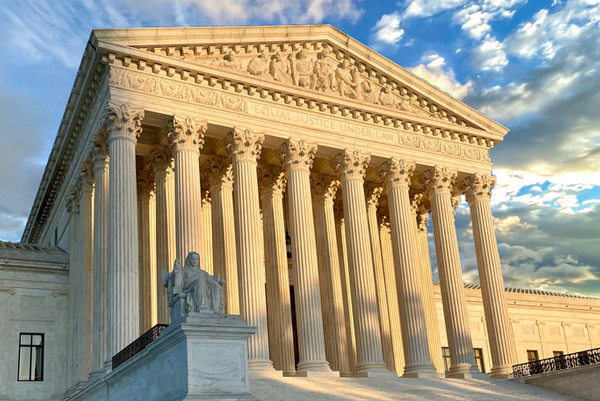West Virginia v. EPA: Supreme Court decision bolsters propane’s position
The U.S. Supreme Court issued its opinion in the landmark case West Virginia v. EPA. While by no means a silver bullet, this decision provides the propane industry with another arrow in its quiver to challenge anti-gas agency rule-making at the federal level.
In this case, the Supreme Court ruled that the EPA overstepped congressional authority when it adopted a regulatory scheme to control power plant emissions. That is, when the EPA capped emissions at a level that effectively forced a transition away from coal-powered electricity generation, it went further than Congress allowed.
To be clear, this decision does not exclude the federal government from picking winners and losers in the energy sector, from pro-electric and anti-gas policymaking, or from forced energy switches. The decision does, however, provide a potential basis for court challenges if a federal agency – whether EPA, Department of Energy, Occupational Safety and Health Administration, Department of Transportation or otherwise – pushes the regulatory envelope too far past what Congress authorized.
The decision – at its core – weakens federal agencies and strengthens reviewing courts on actions pertaining to agency rule-making. For nearly 40 years, a court reviewing an agency’s interpretation of a federal law was required to uphold the agency’s view of ambiguous statutory language so long as it was reasonable. In plain English: Laws are relatively short documents providing general requirements, and the federal agencies fill in all of the gaps with granular rules that are “reasonable.”
The decision in West Virginia v. EPA essentially adds a step when a court is reviewing whether a federal agency overstepped its bounds – it requires the court to first determine whether the agency’s interpretation of a law involves a “major question” as opposed to being more run-of-the-mill. If it involves a “major question,” the agency interpretation is only valid if there is “clear congressional authorization” for the agency’s regulation.
West Virginia v. EPA is the first time the term “major question” has been used by the Supreme Court in a majority decision. To guide lower courts on how to determine what constitutes a “major question,” the Supreme Court provides:
“Precedent teaches that there are extraordinary cases in which the history and the breadth of the authority that [the agency] has asserted and the economic and political significance of that assertion, provide a reason to hesitate before concluding that Congress meant to confer such authority.”
Practical effects
First, the decision provides a party – such as the National Propane Gas Association (NPGA) – a legal avenue to file suit against a federal agency if it believes that the agency acted on a “major question” without specific congressional authority. For example, if NPGA feels the Department of Energy is trying to set aggressive pro-electric, anti-gas standards in a manner that goes beyond what Congress authorized, NPGA could cite West Virginia v. EPA in its formal comments to caution the agency to stay “in bounds” in its rule-making. And if the agency persisted in establishing requirements that NPGA felt were “out of bounds,” it could file a lawsuit, forcing a court to determine whether the agency’s action was in line with the dictates of West Virginia v. EPA.
Other effects of the decision could be that some federal agencies might be more cautious in regulating, though I wouldn’t hold my breath. In addition, where the doctrine established by West Virginia v. EPA cuts back on federal authority to regulate, authority may be asserted by the states. As we have seen in recent weeks, the Supreme Court is effectively shifting strength from the federal government to state governments. This decision, therefore, could embolden states to more ardently implement state-level energy laws whether they be pro-electric/anti-gas, pro-energy choice or otherwise.
Every Supreme Court decision produces dozens upon dozens of lower court opinions in its aftermath. West Virginia v. EPA will likewise be interpreted in a multitude of ways under a multitude of different circumstances in the coming years to become more fully fleshed-out “judicial doctrine.”
But for today, in my opinion, this decision makes it more difficult for a federal agency to wholesale regulate propane out of business unless Congress tells it to do so – and it provides the industry a powerful defense if any agency tries. It does not make it any more difficult for states or localities to do so and does not insulate the industry against narrower actions that could impinge upon usage of propane under agencies’ bread-and-butter rule-making authority.
Stephen Kaminski serves as the president and CEO of the National Propane Gas Association. At the outset of his career, he spent over a decade as an attorney. His law degree is from Harvard Law School.

















